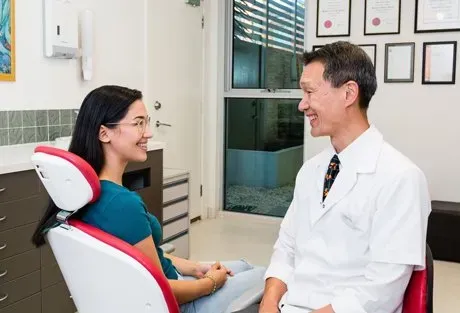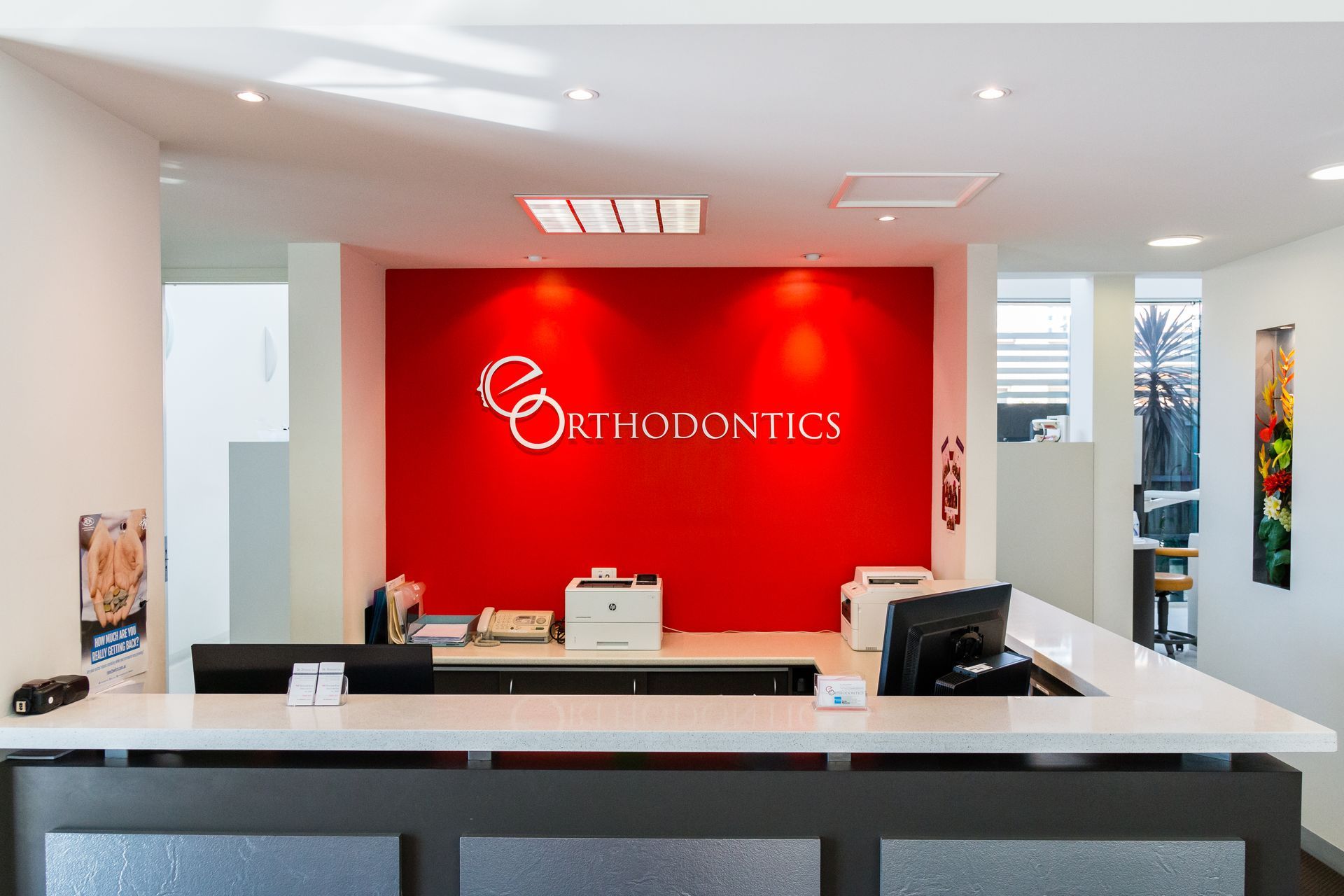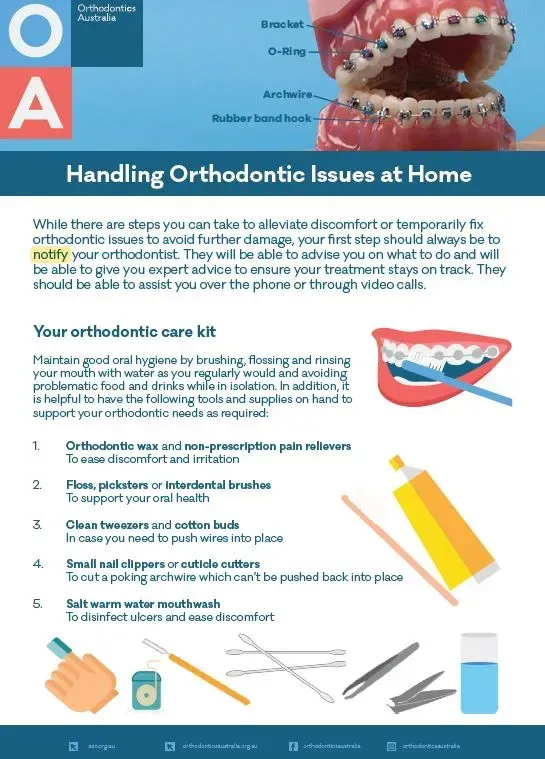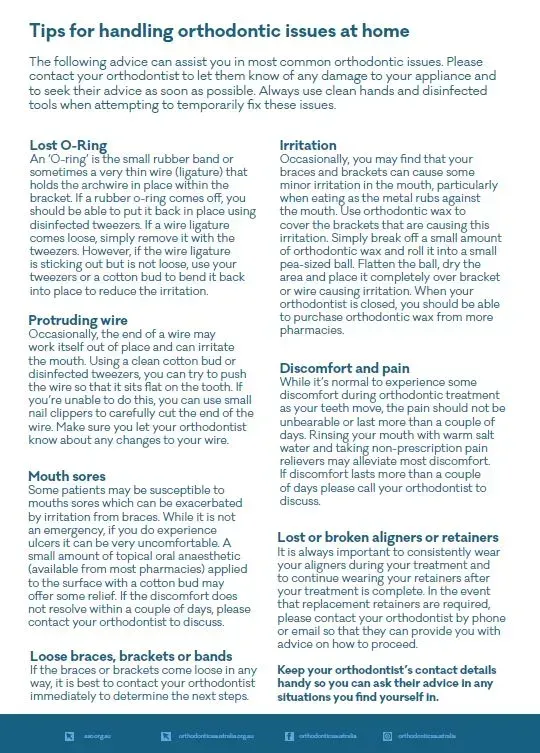What Is Orthodontics?
Orthodontics is a dental specialty that deals with prevention, diagnosis and treatment of dental and facial irregularities. Orthodontics frequently involves using a range of appliances that are fitted to teeth to apply forces that move teeth and bone into the optimal position. The appliances can be fixed, e.g., braces or removable, e.g., plates and clear aligners.
What Is an Orthodontist?
An orthodontist is a dental specialist who is university-trained and is the most qualified to provide orthodontic care for all patients. They provide a wide range of treatment options to straighten crooked teeth, fix bad bites and align the jaws correctly. For more information on the role of an orthodontist and general dentist please refer to this link.
The Aim of Orthodontics
The aim is to achieve a beautiful smile with a bite that is functional and healthy for life. This can range from general alignment to retracting protrusive upper incisors, improving teeth display and lip profile. The decision for extraction vs non-extraction depends on the individual case, the amount crowding, lip fullness and personal desires. This highlights the importance of having detailed digital records and treatment planning to make the best decision for your smile. Patients have a choice of conventional metal, coloured to clear braces and lingual braces.
Your First Visit
You will be greeted by our staff member who will obtain your general details, including your orthodontic concerns and consent. A medical history will be obtained followed by a thorough facial and dental examination. It is a 30-minute consultation for $90.00.
These clinical details would provide sufficient information for Dr Wong to outline the primary problems and possible treatment options and outcomes. Provisional costing can also be given. You will then be given an option to proceed with digital records during the first visit or the next appointment scheduled.

Digital Records
Digital records consist of facial and dental images, 3D scanning of dental arches* and digital X-Rays (OPG, Lateral Cephalograph and Hand Wrist Radiograph if needed).
High-resolution, low-dose digital radiographs are still currently preferred over CBCT scan for routine imaging in this practice. This keeps radiation to the lowest possible.
*This avoids impression taking — no gagging!
From the clinical details and digital records, a treatment plan can be made with the assistance of computerised cephalometrics and digital morphing. It is a 45-minute appointment for $280.00. Additional fees apply for digital X-rays.
The treatment plan will then be given to you and forwarded to your dentist. A definitive quote will also be given. Once you are happy, the next step is to schedule an appointment to start treatment.

Appointments
Banding (placement of braces) and de-banding (removal of braces) procedures require longer appointment times. This is to ensure the best quality of care can be given without rushing through a procedure. We endeavour to schedule short adjustment appointments before or after school times and coordinate the longer appointments with your child’s school time schedule.
Life With Braces – A Users Guide
Be sure to pay attention to tooth cleaning and the foods listed here:
How do I brush with braces?
Brush carefully into the gum line and between braces. We will teach you. Brush and floss thoroughly at least twice a day. Poor brushing can lead to “white spots” around the braces, tooth decay and gum disease.
Do braces hurt?
Your teeth feel “bumpy” just after your braces are put on. After a few days, your lips and mouth will get used to it and the bumpiness will go away. It is also normal to feel some tenderness on your teeth as your teeth are starting to move. If required, you can take your regular medication e.g., Panadol. Also, it is helpful to keep active!
What about sore spots (ulcers)?
Sore spots on cheeks and lips can form during the first few weeks following braces. If required, apply wax (provided) over the “pointy bit” of braces. Replace the wax daily. Rinse with salt water to keep the area clean. The sore spots should heal in a week. Once your lips and cheeks toughen up, sore spots should not occur.
What foods should I avoid?
- STICKY–chewing gum, toffee
- HARD–nuts, crackers, raw apples
- SWEET–lollies, chocolate
Can my braces break?
Chewing hard food can result in breakage of your braces. If you have a breakage, please contact us to fix it. Self-help hints: If you have a sharp wire at the back of your mouth, you can use the rubber at the back of a pencil to bend it in or apply wax until you see us. As a last resort, a new nail clipper can be used to cut the wire off.
What are Elastics?
Elastics adjust your teeth to the ideal bite. If you are required to wear elastics, please wear them according to instructions. They are usually worn > 20 hours/day; not during eating.
When are my appointments?
Attending your adjustment appointments is very important to keep your treatment progressing well. They are normally every 4 – 6 weeks for conventional braces and 8 – 10 weeks for self-tightening braces.
Can I play wind instruments?
You can still play the flute or saxophone. However, your mouth and lips will have to adapt to the new feeling with braces. If your lips get sore, a “lip guard” can be placed over your braces when playing.
Can I play a contact sport with braces?
Yes, you can. A mouthguard is highly recommended to prevent injuries to your teeth, mouth and jaws. The mouthguard can be stock one (upper and lower) or custom-made to fit your braces.
Cost of Orthodontic Treatment
The cost of orthodontic treatment varies depending on the type and extent of treatment. Hence, a thorough examination must be performed before an estimate of cost can be given. Many payment options are available i.e. cash, cheque, EFPTOS or credit card. Payment is also normally made with instalments spread out during the course of orthodontic treatment. If you have private health insurance, ensure that you enquire about your rebates to work out your total out-of-pocket cost.
Schedule your consultation for expert orthodontic care. Call 03 9873 6818 now!


